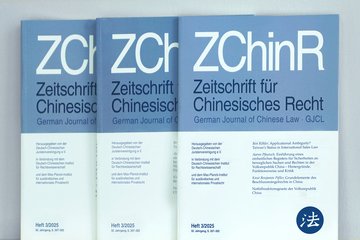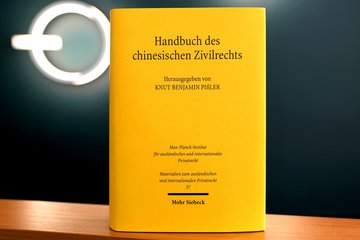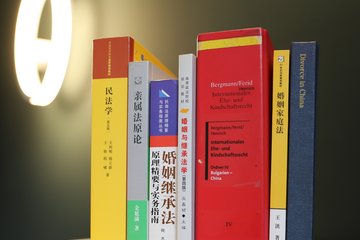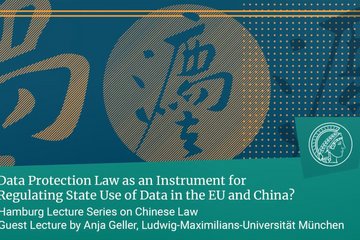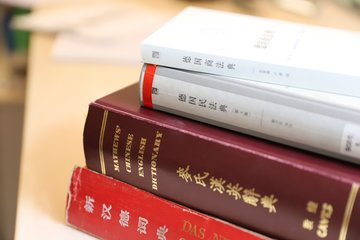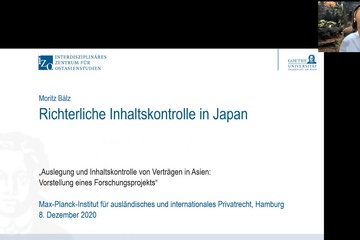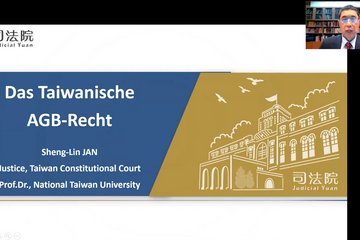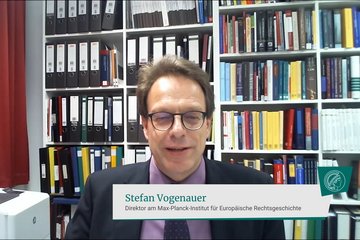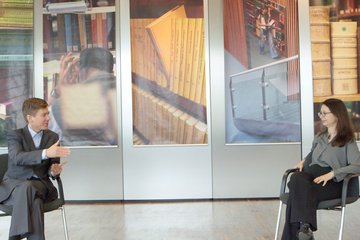
Centre of Expertise for China – Research on the civil law of a leading economic power
China is in the process of becoming a global power. In-depth knowledge of Chinese law is indispensable in light of this. The Centre of Expertise for Chinese Law at the Max Planck Institute for Comparative and International Private Law is devoted to systematically researching Chinese law and communicating knowledge about it, across linguistic and cultural boundaries. Prof. Dr. Knut Benjamin Pißler heads the Centre, which is a unique research institution in Germany. Pißler, a sinologist and scholar of law, focuses on civil, commercial and financial law. He follows legal developments in China together with his research associate Nils Klages, who is likewise a lawyer with Chinese language skills.
Legal uncertainty is one of the greatest challenges faced by foreign economic actors in China, and frequently creates demanding tasks for research on Chinese law.
What contribution can foundational research make in this area?
Knut Benjamin Pißler: “One of our foremost concerns is making Chinese legal sources linguistically accessible. For example, we were able to close a major gap through our work on the ‘Handbuch des chinesischen Zivilprozessrechts’, a compendium on Chinese civil procedure that I published in 2018. This work drew on the contributions of academic and practice-based experts in Chinese law to create a systematic portrayal of civil procedure in the People’s Republic. It also contains the Civil Procedure Law of the People’s Republic of China, including explanations given by the Supreme People’s Court, in both the Chinese original and a German translation.”
The Centre of Excellence maintains close ties with Chinese legal scholars. The academic guests from China who have come for research stays at the Max Planck Institute for Private Law have also included judges from Chinese courts of all instances.
What is the scholarly significance of this exchange with representatives of the judiciary?
Knut Benjamin Pißler: “The rapid development of the Chinese economy and the strong presence of foreign companies and investors in China means that the question of the practical enforceability of civil law claims is becoming increasingly important. Topics such as the organisation of courts with judges, lay assessors and bailiffs are highly significant. We need to look more closely at the practical application of Chinese civil law through case law in order to understand what direction it is developing in.”
What current developments inform your choices of research topics?
Knut Benjamin Pißler: “It is to be expected that the spread of digital technology in China will also influence the development of civil law. We observe legislation and legal practice, for example in the creation of an online register of debtors, which is part of the social credit rating system and opens up a whole new perspective on the enforcement of civil claims.”
Nils Klages: “I am also working on enforcement issues in my dissertation project. It deals with legal remedies that shareholders in Chinese companies can use to defend themselves against decisions that violate their rights. It is important to understand which legal rules govern the relations between shareholders, because state actors still have a major influence in many Chinese companies today.”
Knut Benjamin Pißler, who is also a professor at the Sino-German Institute for Legal Studies at the University of Göttingen, is heavily involved in teaching, training and providing support to law students and early-career scholars. For more than ten years, he has been lecturing as part of the Göttingen Summer School on Chinese Law.
He also plays a leading role in symposia and lecture series, including the Hamburg Lecture Series on Chinese Law, which has been taking place since 2002; the legal symposia that are part of Germany’s leading China-related lecture series, CHINA TIME in Hamburg; and the China’s Changing Legal System series that is organised in cooperation with the Hamburg Chamber of Commerce and the German Asia-Pacific Business Association (OAV).
